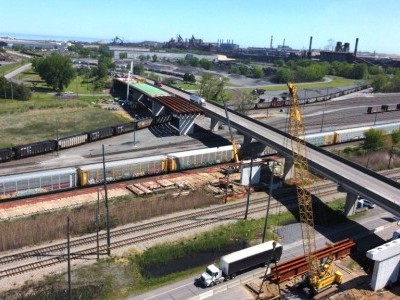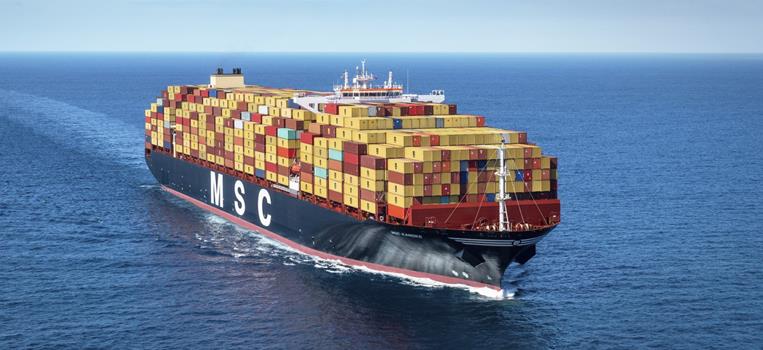Rising to the challenge of working aboard a Great Lakes-St. Lawrence ship during COVID-19
Jun 02, 2020It isn’t easy to social distance on a tug. The Sharon M, which regularly pushes a barge carrying Canadian-made steel coils and plates to U.S. cities for auto production, is just under 35 metres long.
The interior is much smaller than the giant bulkers that ply the Great Lakes. The hallways are narrower and the nine-person crew share accommodation and three bathrooms.
But that hasn’t stopped the vessel’s operator McKeil Marine from devising ways to protect the crew during the COVID-19 pandemic. One of the most important steps has been thoroughly vetting crew members before they arrive for duty, including temperature checks, and organizing crew rotations so the same crew work together for five weeks and then all leave together for their five weeks off.
When Captain Ray Davis and his crew arrived for duty, the chief engineer had already been doing winter repair work on the tug for weeks. But he volunteered to stay an additional five weeks so that he could continue to rotate with the crew during the pandemic. “We have just a great group of guys. We’ve been on the same boat for five years,” says Captain Davis. “They are really hard-working and they buy into our team within a team approach, which really helps when you’re dealing with a situation like COVID-19.”
Captain Davis is one of a number of captains that were interviewed by the Chamber of Marine Commerce for a series of articles highlighting how crews are working, living and coping aboard ships transporting vital goods in the bi-national Great Lakes-St. Lawrence region and the East Coast.
Designated as an essential service during the pandemic crisis, crew members have gone to great lengths to adapt their work practices, often making personal sacrifices to ensure the safety of their fellow crew members and to ensure that food staples, manufacturing materials and energy supplies continue to be delivered in Canada and the United States. Marine transportation supports more than CDN$60 billion (USD$46 billion) of economic activity in the bi-national Great Lakes-St. Lawrence River region.
Similar Stories

Jeffersonville port delivers record road salt shipments to Greater Louisville area during recent winter storms
View ArticleNC Ports Notice: Holiday Schedule Notice Martin Luther King Jr. Day
The Port of Wilmington Container Gate (South Gate) and the Charlotte Inland Port (CIP) will operate on a reduced schedule on Monday, January 20: 8 AM-12 PM and 1 PM-5…
View Article
Port of Long Beach’s Cordero hails ‘Green Port’ achievements
View ArticleWorld Shipping Council: Shipping carriers move to prevent deadly charcoal fires
The shipping industry is taking proactive steps to implement improved safety measures for transporting charcoal, ahead of mandatory IMO regulations in 2026.
View Article
MSC Announcement: GRI - General Rate Increase Feb 2025
View Article
Drewry’s World Container Index - 16 Jan
View ArticleGet the most up-to-date trending news!
SubscribeIndustry updates and weekly newsletter direct to your inbox!





